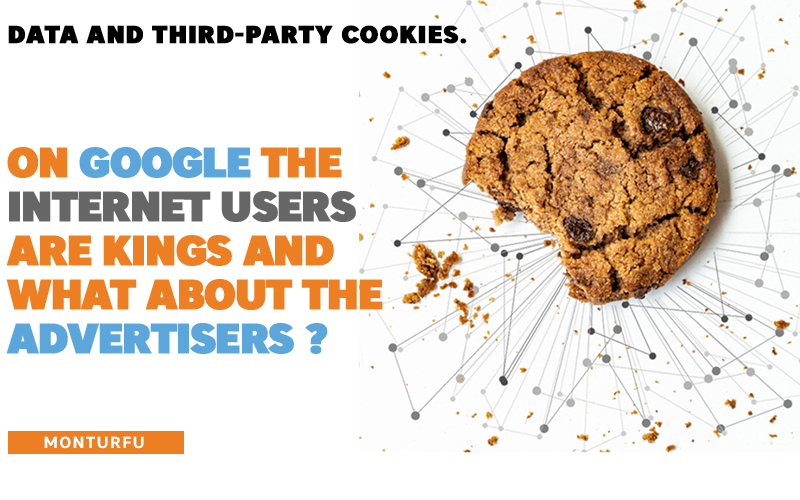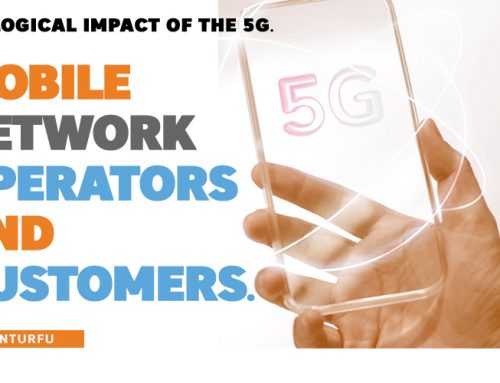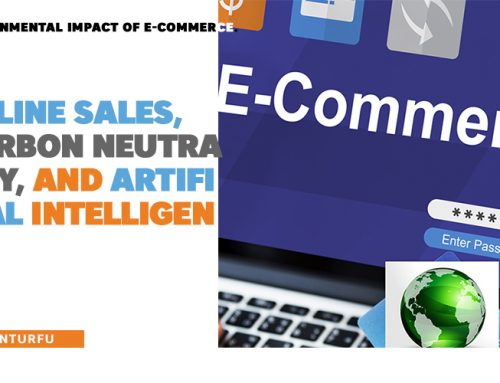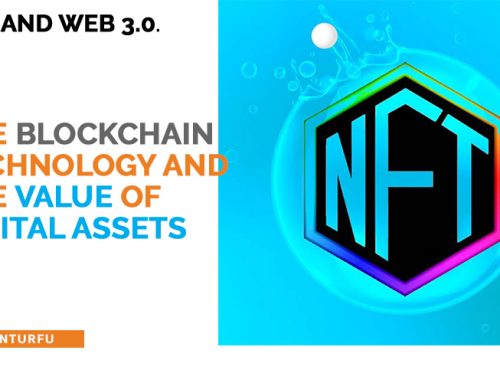DATA AND THIRD-PARTY COOKIES.
ON GOOGLE THE INTERNET
USERS ARE KINGS AND
WHAT ABOUT ADVERTISERS?
One can legitimately wonder if it is the subscription to the Internet that conditions the free services. According to the Digital Report 2021 from We Are Social and Hootsuite, out of the 65.35 million French people, there are 59.47 million Internet users, i.e. 91% of the population, and 49.6 million active users of social networks, i.e. 75.9% of the population. In December 2020, 74.4% of French Internet users made an online purchase.
Data and third-party cookies in digital.
So, the digital business model works in France. And of course, we can observe that the different products that we acquire and buy in mass on the web are not free. This is when the age-old adage emerges : if it’s free, you are the product. So the services on the web are the work of professionals. And all work deserves to be paid.
Data and third-party cookies, the principle of the free web.
Indeed, access to the vast majority of sites is free. We do not pay to use the services of social networks, Facebook, Instagram, Twitter or Tik Tok. However, they live from the advertisements they offer us. And this is also the case for content sites. Because they also live from this same advertising model.
Towards a new paradigm.
Faced with the growing demand of web users for transparency in the recording of personal data and their accessibility, the digital behemoths are mobilizing and proposing alternatives.
In concrete terms, this is a real change for the user. There will be no more profiling by default, no more tracking between different sites or targeted ads without explicit consent. For Internet users, this is clearly a good thing. On the other hand, for advertisers, it is a real tsunami since the Internet has been working with cookies for 25 years, says Gaetan Godart.
Data and third-party cookies, functions and roles.
Third-party cookies track and trace the path of Internet users on the web. They allow to target their interests by extrapolation. Advertisers can then leverage these resources and target audiences that are relevant to their business. They can then offer consumers only products and services that actually appeal to them.
Google announces the end of third-party cookies by the end of 2022.
Google represents with Chrome more than 68% of user requests on the Internet. However, it has announced that it will stop using third-party cookies by the end of 2022. On the other hand, this initiative is part of a context of strengthening measures to protect individual data, in line with the General Data Protection Regulation, RGPD.
Moreover, Safari and Firefox are two browsers that already block third-party cookies by default.
Faced with these announcements, questions emerge : will they lead to the end of advertising on the Internet and do they threaten the world of digital marketing ?
A look back at the reasons for Internet users’ dissatisfaction.
Users of web services are increasingly concerned about the protection of their personal data. In fact, even more of them are wary of Google and Facebook when it comes to privacy.
In April 2018, the boss of the social network, Mark Zuckerberg confirms to the European Commission the inappropriate transmission of personal data of 2.7 million European users of Facebook, or even 87 million users worldwide to the British firm Cambridge Analytica, CA. Ultimately, third-party cookies are harvested and sold for the purpose of advertising targeting, in order to create ultra-targeted profiles. This data is used massively and in an opaque way. This makes users suspicious.
Data and third-party cookies in the drift.
Intervene therefore in 2018 the General Regulation on Data Protection RGPD, or the ePrivacy 2021 regulation. These laws impose transparency rules on companies. It is no longer a question of leaving the Internet user in the dark as to the use made of his personal data, but of giving him the choice of whether or not to communicate them, and above all to know what will be done with them.
And in this search for alternative solutions to third-party cookie tracking, Internet users are learning to use the Internet tool. They learn and know how to use ad blockers or other methods, including the use of incognito mode, and anonymous networks such as Tor, etc.
The functional limitations of third-party cookies.
Apart from the problems of confidentiality, third-party cookies present some shortcomings on the advertisers’ side. Because the data are less precise and far from being exclusive. Insofar as any company that pays for them, has access to them.
On the other hand to this defect, problems of reliability are added. In fact, the advertisers cannot check the origin of the information, nor their age or their accuracy. So these companies are unable to know if their ads are really relevant to their persona, or their typical customers.
Data and third-party cookies, key figures.
Contrary to the global trend, French Internet users connect primarily to YouTube, 79.6% or 49.6 million users, ahead of Facebook, 33 million users. However, the entire Facebook ecosystem dominates the French market. In the rest of the ranking come Snapchat, Twitter, Pinterest, LinkedIn and TikTok. And, according to the report Online Advertising: For a level playing field, November 2020, Google and Facebook already hold 75% of the online advertising market.
Google unveils the privacy sandbox solution.
Indeed, Google presents the Privacy sandbox as an alternative targeting technology to third-party cookies. And it is Google itself that collects the data. Then, of course, it makes it available via a secure API, Allocation Parent Isolated. Moreover, the new FLoC mechanism, or Federated Learning of Cohorts, is part of these proposals and is respectful of privacy. The objective of the approach is obviously to set up a strong data protection system.
Google invites advertising players, who fear the deletion of cookies, to contribute to the Privacy Sandbox, via the GitHub platform or the World Wide Web Consortium, W3C.
From mobile first to mobile only, relationship marketing is king.
Google does indeed offer more or less optimal solutions to deal with the death of third-party cookies.
In addition, the concept of mobile first emerged in 2009 and brought with it a whole approach to relational marketing. It consecrates the customer and declares him as the cornerstone of its relationship with the market. Moreover, the emergence of the mobile-only concept in 2019, increases the predominance of user experience, native or first-party cookies.
This type of cookie has major advantages since the information is authentic, precise and given voluntarily by the users themselves. Finally, it strengthens the relationship of trust with the customer and his loyalty towards the brand or the company.
The end of third-party cookies and the marketing of personal data.
In essence, the end of third-party cookies is part of a logic of strengthening the RGPD. And without third-party cookies, there is no longer any need for consent to share and use personal data. So the end of third-party cookies means the end of the commercialization of individual data.
Data and third-party cookies : the end and the image of the Google brand.
Indeed, the disappearance of third-party cookies allows Google to improve its brand image. However, when users use the services, YouTube, Maps, Chrome … Google does not need cookies to track them. Google can therefore continue to exploit proprietary data. And position itself as an actor who puts privacy first.
New challenges for advertisers.
The disappearance of third-party cookies is likely to reduce the targeting capabilities of advertisers. Thus, the related advertisements will no longer randomly reach Internet users of all profiles, but rather the affinity target, for which the said advertising campaign is intended. However, with this qualitative targeting, companies lose the contagiousness of the power of the number of third-party cookies, albeit random.
Press publishers and neighboring rights.
Some actors of the web apprehend badly this approach of Google.
Thus, Stéphane Dugelay, Mediarithmics fears, This way of doing things is like a black box ! To this objection Google France takes back curtly, If it was a black box, why would we have launched this consultation with the whole industry? Google can only survive the end of the cookie if the Web survives too.
Finally, the disappearance of third-party cookies may make advertisers even more dependent on Google and its proprietary data.
75% of the targeted advertising market is vertically integrated by two players, Google and Facebook. The rest is an open market, via third-party cookies. By deleting them, we kill the remaining part. But if we strengthen the GAFA, we do not better protect privacy, regrets the economist Joëlle Tolenado.
Ok de-MEDEIROS
SOURCES : https://www.journaldunet.com/solutions/analytics/1506969-les-cookies-tiers-vont-ils-entrainer-la-publicite-ciblee-dans-leur-chute/, https://www.sudinfo.be/id434055/article/2021-12-17/revolution-en-vue-sur-internet-la-fin-des-cookies-publicitaires, https://www.blogdumoderateur.com/impact-publicite-fin-cookies-tiers/ , https://www.lesechos.fr/idees-debats/cercle/opinion-la-fin-des-cookies-tiers-signe-t-elle-la-fin-de-la-publicite-ciblee-1357628, https://www.numerama.com/tech/707192-la-fin-des-cookies-dans-google-chrome-preoccupe-la-commission-europeenne.html, https://www.journaldunet.com/ebusiness/publicite/1499487-cookies-pubs-comment-les-sites-francais-se-sont-adaptes-aux-regles-de-la-cnil/, https://fr.audiofanzine.com/plugin-alliance/forums/t.764094,commentaires-sur-la-news-ca-sent-la-fin-chez-plugin-alliance.html, https://fr.audiofanzine.com/plugin-alliance/forums/t.764094,commentaires-sur-la-news-ca-sent-la-fin-chez-plugin-alliance.html, https://www.journaldugeek.com/2020/01/15/cookies-google-va-changer-quoi/, https://www.lesechos.fr/tech-medias/hightech/fin-du-cookie-les-nouvelles-recettes-du-ciblage-publicitaire-1183338 , vyshnavi-bisani-z8kriatLFdA-unsplash






Laisser un commentaire